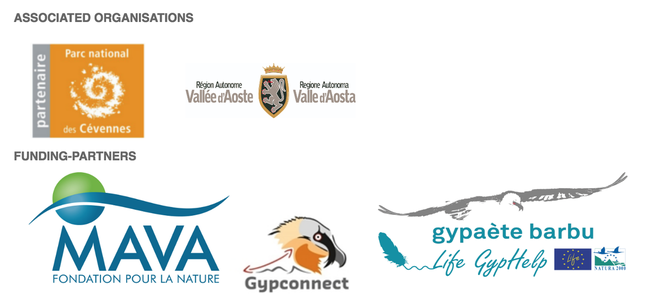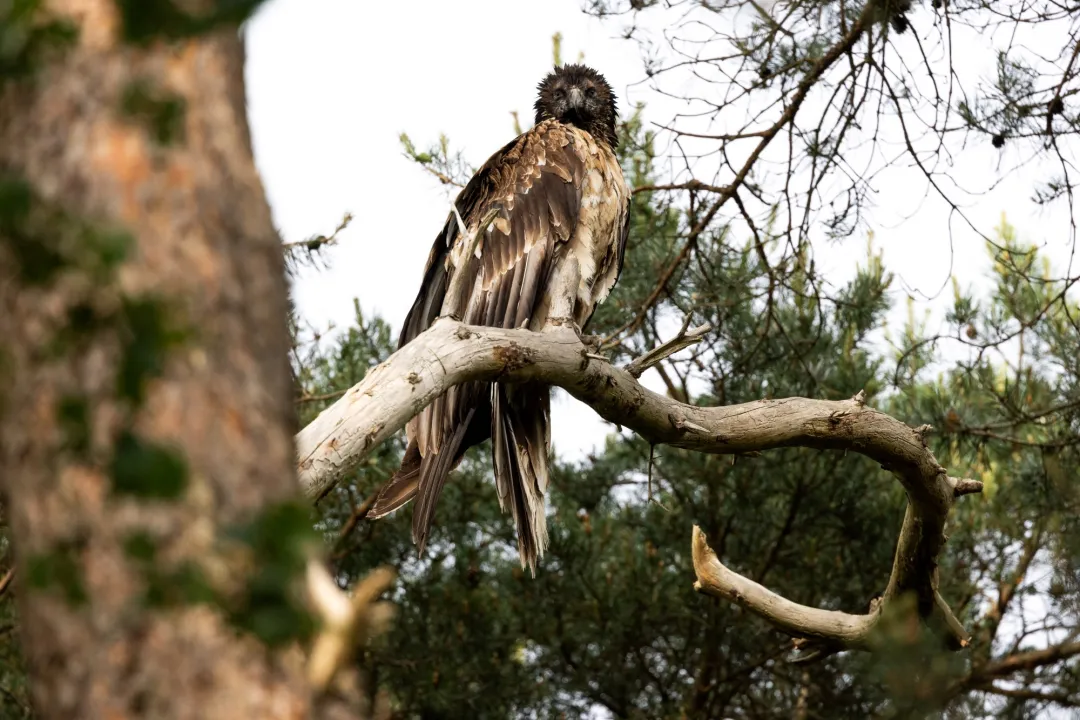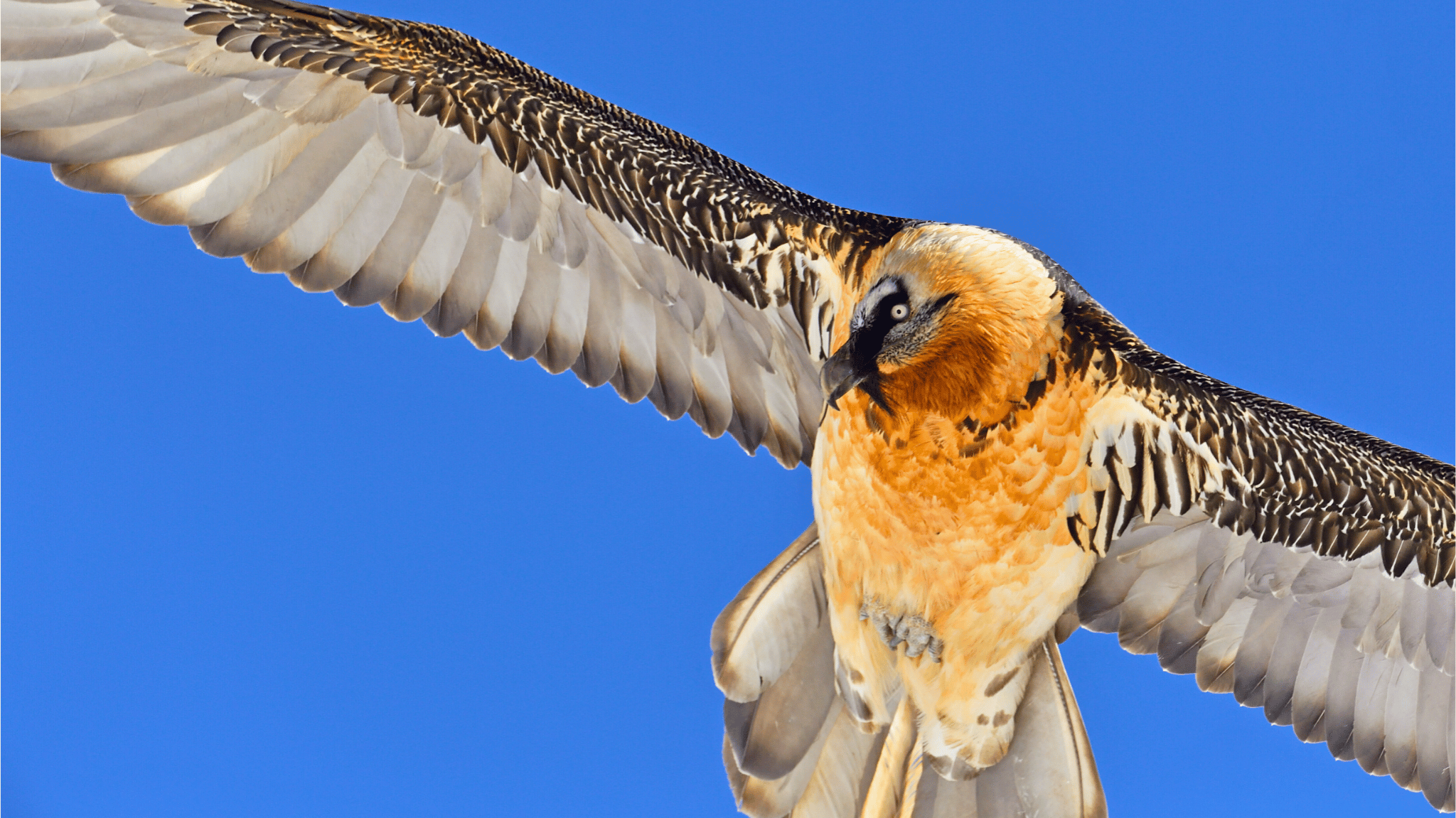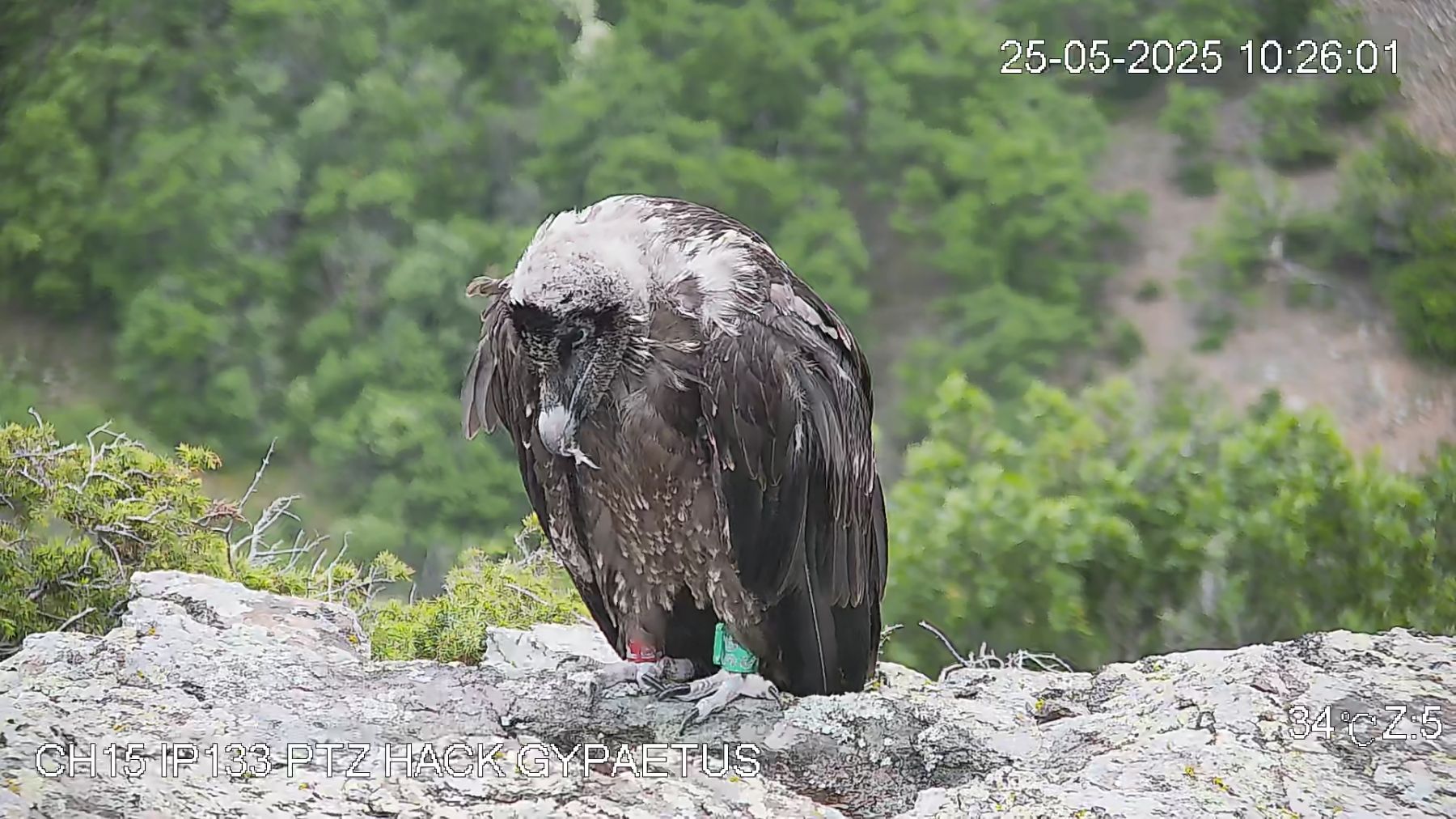
For the 15th consecutive year, the International Observation Days (IOD) will take place at the beginning of October to monitor Bearded Vulture populations in Europe. This annual event brings together hundreds of volunteers and experts to search the skies for Europe’s rarest vulture across the Alps, the Massif Central in France, Aude in the French Pyrenees and Andalusia in Spain, as well as in Bulgaria. If you are a vulture fan that wants to help conservationists monitor and count the magnificent Bearded Vulture, participate in the IOD!
International Observation Days
The International Observation Days (IOD) for Bearded Vultures started in 2006 and are organized by the International Bearded Vulture Monitoring Network (IBM), which is coordinated by us here at the Vulture Conservation Foundation. It takes place for a week in October with a single focal day, where members of the public join Bearded Vulture experts and experienced bird watchers to carry out simultaneous and coordinated surveys. Initially, the surveys covered the Alpine arc following the Bearded Vulture reintroduction project in the region, but as the population of the species has grown thanks to increasing conservation and reintroduction efforts, the IOD has expanded to include the Massif Central in France, Aude in the French Pyrenees and Andalusia in Spain. It also includes Bulgaria where there are no Bearded Vultures yet, but there are future plans to bring the species back to the country and the wider region. Furthermore, Bearded Vulture experts from Morocco participated the IOD for the first time in 2019.
2019 IOD results
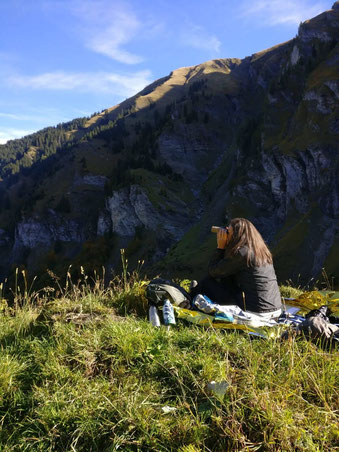
In last year’s IOD, a total of 1146 participants logged in 832 Bearded Vulture observations! Crossing the observation data with expert knowledge about the presence of territorial and tagged birds, the IBM estimates the Bearded Vulture population size in the Alps to vary between 256 and 344 individuals, in the Massif Central between 4-5, in the Aude region of the French Pyrenees between 5-7 and Andalusia and Castilla y León between 32 to 40. In the High Atlas in Morocco, the local partners estimated 6 to 11 Bearded Vultures. Just like in 2018, the team in Bulgaria did not observe Bearded Vultures where the species went extinct in 1972.
Why is it important to count Bearded Vultures?
This count allows for thorough monitoring of the Bearded Vulture population status and distribution in almost the full distribution range. Furthermore, the count produces many sightings of identifiable birds, and it generates baseline data for conservation scientists to analyze survival rates and model the age structure of the population, which will help us understand the impacts of the reintroduction programmes.
Get involved
The IOD is an ambitious conservation initiative that covers seven different countries and cannot be achieved without the help of the public! This year’s simultaneous count is on Saturday, 3 October 2020. All over the Alps, the Massif Central, the department Aude and Andalusia and Bulgaria, we are inviting people to get involved, pick up a pair of binoculars, spend the day in the mountains, help us look for Bearded Vultures and get counting.
Through our network of organizations and IBM partners, there are plenty of opportunities to get involved. Please contact the regional coordinators below if you are interested in participating or contact us for any other question:
Austria
Nationalpark Hohe Tauern: ferdinand.lainer@salzburg.gv.at
Bulgaria
Green Balkans: smarin@greenbalkans.org
France
Asters Haute-Savoie Conservatory of Natural Areas: etienne.marle@asters.asso.fr
Le Parc national du Mercantour
Ubaye: francois.breton@mercantour-parcnational.fr
Verdon: verdon@mercantour-parcnational.fr
Haut Var: varcians@mercantour-parcnational.fr
Tinée: tinee@mercantour-parcnational.fr
Vésubie: vesubie@mercantour-parcnational.fr
Roya Bevera: royabevera@mercantour-parcnational.fr
Parc national de la Vanoise: jerome.cavailhes@vanoise-parcnational.fr
Envergures Alpines: envergures.alpines@gmail.com; Dauphiné: christian.couloumy@gmail.com
Parc naturel régional des Grands Causses: bruno.veillet@lpo.fr
Parc naturel régional du Vercors: life.gypaete@pnr-vercors.fr
Vautours en Baronnies: gypaete@vautoursenbaronnies.com
Ligue pour la Protection des Oiseaux de l’Aude: lise.dauverne.aude@lpo.fr
Italy
Parco Nazionale dello Stelvio: enrico.bassi76@gmail.com
Aosta: c.chioso@regione.vda.it
Parco Naturale Alpi Marittime: fabiano.sartirana@parcoalpimarittime.it
Spain
Junta de Andalusia (Andalusia and Castilla y León): enrique.avila@juntadeandalucia.es
Switzerland
Stiftung Pro Bartgeier
Central Switzerland: franziska.loercher@swild.ch
Eastern Switzerland (Graubünden) jenny.d@compunet.ch
Southern Switzerland (Tessin): roberto.lardelli@gmail.com
North-Western Switzerland (Bern) marco.orni@gmail.com
South-Western Switzerland (Valais + Western Switzerland): fbiollaz@gmail.co
Germany
ZnAlp & LBV (NP Berchtesgaden, Allgäu): henning.werth@reg-schw.bayern.de & toni.wegscheider@lbv.de
Sign up to our newsletter to never miss any vulture news!
#CountingBeardedVultures
International Bearded Vulture Monitoring Network (IBM)

The International Bearded Vulture Monitoring Network (IBM) is a unique international collaboration led by the Vulture Conservation Foundation between national & natural parks and non-governmental organisations to coordinate the monitoring activities for European Bearded Vulture populations. Through this network, data about the Bearded Vulture in Europe is collected, shared and made available to everyone working for the conservation of the species. The IBM-network also uses this data and comes together to discuss conservation strategies and priorities for this species on an international level. There are currently 16 partners and two associated organisations part of the IBM-network.
If you have any Bearded Vulture observations and photographs in the Alps, please report them here.
